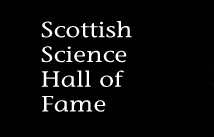James Clerk Maxwell (1831-1879)
James Clerk-Maxwell : [obituary]
of Edinburgh, Session 1879–80.
333
with physical and chemical apparatus, and devouring all sorts of
scientific works in the library.* During this period he wrote two
valuable papers, which are published in our “Transactions,” on
“The Theory of Rolling Curves,” and “On the Equilibrium
of Elastic Solids.” Thus he brought to Cambridge in the autumn
of 1850 a mass of knowledge which was really immense for so
young a man, but in a state of disorder appalling to his methodical
private tutor. Though that tutor was William Hopkins, the pupil
to a great extent took his own way; and it may safely be said
that no high wrangler of recent years ever entered the Senate-
House more imperfectly trained to produce “paying” work than
did Clerk-Maxwell. But by sheer strength of intellect, though
with the very minimum of knowledge how to use it to advantage
under the conditions of the examination, he obtained the position
of Second Wrangler, and was bracketed equal with the Senior
Wrangler in the higher ordeal of the Smith's Prizes. His name
appears in the Cambridge “ Calendar ” as Maxwell of Trinity, but he
was originally entered at Peter-House, and kept his first term there,
in that small but most ancient foundation which has of late furnished
Scotland with the majority of the Professors of Mathematics and
Natural Philosophy in her four universities.
In 1856 he became Professor of Natural Philosophy in Marischal
College, Aberdeen; in 1860, Professor of Physics and Astronomy in
King's College, London. He was successively Scholar and Fellow of
Trinity; and was elected an Honorary Fellow of Trinity when he
finally became, in 1871, Professor of Experimental Physics in the
University of Cambridge. There can be no doubt that the post to
which he was ultimately called was one for which he was in every
way pre-eminently qualified; and the Cavendish Laboratory, erected
and furnished under his supervision, remains as remarkable a monu-
ment to his wide-ranging practical knowledge and theoretical skill as
it is to the well-directed munificence of its noble founder.
If the title of mathematician be restricted (as it too commonly is)
*From the University Library lists for this period it appears that Maxwell
perused at home Fourier's Théorie de la Chaleur, Monge's Géométrie Descrip-
tive, Newton's Optics, Willis's Principles of Mechanism, Cauchy's Calcul
Différentiel, Taylor's Scientific Memoirs, and many other works of a high
order. Unfortunately no record is kept of books consulted in the reading-
room.

![James Clerk-Maxwell : [obituary] - Page 333](https://deriv.nls.uk/dcn4/7449/74491727.4.jpg)
